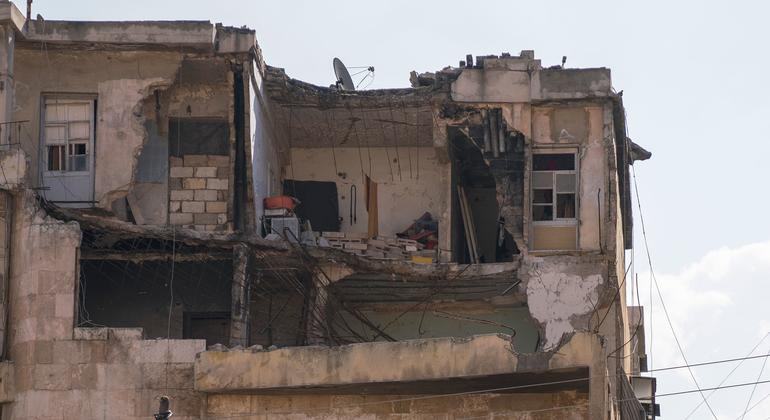In the Middle East, the ongoing conflict in Syria has once again resulted in tragic casualties, with a six-month-old baby among at least 13 children reported to have been killed. Edouard Beigbeder, UNICEF’s Regional Director for the Middle East, expressed deep concern over the violence that erupted between Syrian Caretaker Authority forces and soldiers loyal to the former Assad regime.
Eyewitness accounts revealed that much of the killing occurred in Alawite neighborhoods in the coastal provinces of Latakia and Tartus, which are traditional strongholds of support for the former regime. The Assad family belongs to the Alawite sect, an offshoot of Shia Islam that makes up around ten percent of Syria’s population.
Authorities announced that the operation had ended, but not before reports of civilian casualties, looting, mass displacement, and extensive infrastructure damage, including to power lines, six hospitals, and several ambulances. The escalation of violence led to additional civilian casualties, injuries, and the displacement of thousands of families, prompting Mr. Beigbeder to issue a statement urging all parties to prioritize reconciliation and commit to a peaceful political transition.
“The children of Syria have suffered enough. They have the right to live in peace and hope for a better future,” Mr. Beigbeder emphasized, calling for measures to ensure that Syria’s children can survive, thrive, and reach their full potential.
UN Secretary-General António Guterres also expressed deep concern over the violent escalation, particularly the reports of widespread summary killings, including entire families. He called on all parties to protect civilians and cease inflammatory rhetoric and actions, emphasizing the need for inclusive and transparent transitional justice and lasting reconciliation measures.
Geir Pedersen, the UN Special Envoy for Syria, briefed the Security Council on the situation and reaffirmed the UN’s readiness to support an inclusive, Syrian-owned, and Syrian-led political transition in accordance with Council resolution 2254 (2015). Mr. Guterres underscored the urgency of addressing grievances and tensions between different communities in Syria, emphasizing the importance of full accountability.
As the conflict continues to ravage Syria, humanitarian assistance remains a critical need for millions of people across the country. According to UN estimates, more than 16 million Syrians require humanitarian aid to survive and cope with the devastating consequences of the conflict. The UNICEF image captioned “According to UN estimates, more than 16 million people require humanitarian assistance across Syria” serves as a stark reminder of the scale of the humanitarian crisis gripping the nation.
In the midst of escalating violence and tensions, ensuring the protection of civilians and promoting peace and reconciliation become paramount objectives for all parties involved in the conflict. The international community, led by the United Nations, must continue to advocate for a peaceful resolution to the crisis in Syria, prioritizing the well-being and future of the country’s children who have borne the brunt of the conflict’s devastation.
The situation in Syria serves as a grim reminder of the ongoing challenges facing the Middle East region and the urgent need for concerted efforts to address the root causes of conflict, promote dialogue and reconciliation, and uphold the rights and dignity of all Syrians. As the international community grapples with the complexities of the Syrian conflict, it is imperative that all parties commit to peaceful and inclusive solutions that prioritize the well-being and future of Syria’s most vulnerable populations.









